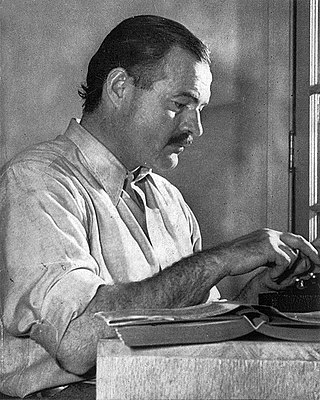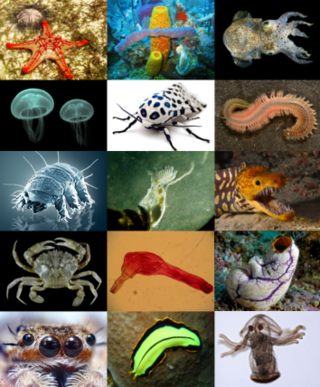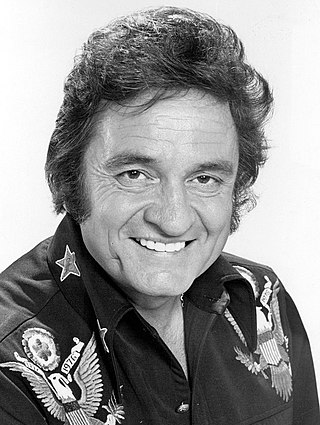
An autobiography, sometimes informally called an autobio, is a self-written biography of one's own life.

Siddhartha Gautama, most commonly referred to as the Buddha, was a wandering ascetic and religious teacher who lived in South Asia during the 6th or 5th century BCE and founded Buddhism. According to Buddhist legends, he was born in Lumbini, in what is now Nepal, to royal parents of the Shakya clan, but renounced his home life to live as a wandering ascetic. Buddhists believe that after leading a life of mendicancy, asceticism, and meditation, he attained nirvana at Bodh Gaya in what is now India. The Buddha then wandered through the lower Indo-Gangetic Plain, teaching and building a monastic order. Buddhist tradition holds he died in Kushinagar and reached parinirvana, final nirvana.

Benjamin Franklin was an American polymath, a leading writer, scientist, inventor, statesman, diplomat, printer, publisher, and political philosopher. Among the most influential intellectuals of his time, Franklin was one of the Founding Fathers of the United States; a drafter and signer of the Declaration of Independence; and the first postmaster general.

Ernest Miller Hemingway was an American novelist, short-story writer and journalist. Best known for an economical, understated style that significantly influenced later 20th-century writers, he is often romanticized for his adventurous lifestyle, and outspoken and blunt public image. Most of Hemingway's works were published between the mid-1920s and mid-1950s, including seven novels, six short-story collections and two non-fiction works. His writings have become classics of American literature; he was awarded the 1954 Nobel Prize in Literature, while three of his novels, four short-story collections and three nonfiction works were published posthumously.
Hinduism is an Indian religion or dharma, a religious and universal order by which its followers abide. The word Hindu is an exonym, and while Hinduism has been called the oldest religion in the world, it has also been described as sanātana dharma, a modern usage, based on the belief that its origins lie beyond human history, as revealed in the Hindu texts. Another endonym for Hinduism is Vaidika dharma.

Muhammad was an Arab religious, social, and political leader and the founder of Islam. According to Islamic doctrine, he was a prophet divinely inspired to preach and confirm the monotheistic teachings of Adam, Abraham, Moses, Jesus, and other prophets. He is believed to be the Seal of the Prophets within Islam, with the Quran as well as his teachings and practices forming the basis for Islamic religious belief.

Michelangelo di Lodovico Buonarroti Simoni, known mononymously as Michelangelo, was an Italian sculptor, painter, architect, and poet of the High Renaissance. Born in the Republic of Florence, his work was inspired by models from classical antiquity and had a lasting influence on Western art. Michelangelo's creative abilities and mastery in a range of artistic arenas define him as an archetypal Renaissance man, along with his rival and elder contemporary, Leonardo da Vinci. Given the sheer volume of surviving correspondence, sketches, and reminiscences, Michelangelo is one of the best-documented artists of the 16th century. He was lauded by contemporary biographers as the most accomplished artist of his era.

Gnaeus Pompeius Magnus, known in English as Pompey or Pompey the Great, was a general and statesman of the Roman Republic. He played a significant role in the transformation of Rome from republic to empire. Early in his career, he was a partisan and protégé of the Roman general and dictator Sulla; later, he became the political ally, and finally the enemy, of Julius Caesar.

Penguins are a group of aquatic flightless birds from the family Spheniscidae of the order Sphenisciformes. They live almost exclusively in the Southern Hemisphere: only one species, the Galápagos penguin, is found north of the Equator. Highly adapted for life in the ocean water, penguins have countershaded dark and white plumage and flippers for swimming. Most penguins feed on krill, fish, squid and other forms of sea life which they catch with their bills and swallow whole while swimming. A penguin has a spiny tongue and powerful jaws to grip slippery prey.

John Marcellus Huston was an American film director, screenwriter and actor. He wrote the screenplays for most of the 37 feature films he directed, many of which are today considered classics. He received numerous accolades including two Academy Awards and three Golden Globe Awards. He also received a star on the Hollywood Walk of Fame in 1960 and the BAFTA Fellowship in 1980.

Judy Garland was an American actress and singer. She attained international stardom and critical acclaim: as an actress in both musical and dramatic roles; as a recording artist; and on the concert stage. Renowned for her versatility, she received a Golden Globe Award, a Special Tony Award and was one of twelve in history to receive an Academy Juvenile Award. Garland won the Grammy Award for Album of the Year for her 1961 live recording, Judy at Carnegie Hall; she was the first woman to win that award.

Christopher George Latore Wallace, better known by his stage names The Notorious B.I.G., Biggie Smalls, or simply Biggie, was an American rapper. Rooted in East Coast hip hop and particularly gangsta rap, he is widely considered one of the greatest rappers of all time. Wallace became known for his distinctive laid-back lyrical delivery, offsetting the lyrics' often grim content.
Life imprisonment is any sentence of imprisonment for a crime under which convicted criminals are to remain in prison for the rest of their natural lives. Crimes that warrant life imprisonment are extremely serious and usually violent. Examples of these crimes are murder, torture, terrorism, child abuse resulting in death, rape, espionage, treason, illegal drug trade, human trafficking, severe fraud and financial crimes, aggravated property damage, arson, hate crime, kidnapping, burglary, robbery, piracy, aircraft hijacking, and genocide.

A memoir is any nonfiction narrative writing based on the author's personal memories. The assertions made in the work are thus understood to be factual. While memoir has historically been defined as a subcategory of biography or autobiography since the late 20th century, the genre is differentiated in form, presenting a narrowed focus, usually a particular time phase in someone's life or career. A biography or autobiography tells the story "of a life", while a memoir often tells the story of a particular career, event, or time, such as touchstone moments and turning points in the author's life. The author of a memoir may be referred to as a memoirist or a memorialist.

Jesus, also referred to as Jesus Christ, Jesus of Nazareth, and many other names and titles, was a first-century Jewish preacher and religious leader. He is the central figure of Christianity, the world's largest religion. Most Christians believe Jesus to be the incarnation of God the Son and the awaited messiah, the Christ that is prophesied in the Old Testament.

Animals are multicellular, eukaryotic organisms in the biological kingdom Animalia. With few exceptions, animals consume organic material, breathe oxygen, have myocytes and are able to move, can reproduce sexually, and grow from a hollow sphere of cells, the blastula, during embryonic development. Animals form a clade, meaning that they arose from a single common ancestor.

John R. Cash was an American country singer-songwriter. Most of Cash's music contains themes of sorrow, moral tribulation, and redemption, especially songs from the later stages of his career. He was known for his deep, calm, bass-baritone voice, the distinctive sound of his backing band, The Tennessee Three, that was characterized by its train-like chugging guitar rhythms, a rebelliousness coupled with an increasingly somber and humble demeanor, and his free prison concerts. Cash wore a trademark all-black stage wardrobe, which earned him the nickname as the "Man in Black".

James Byron Dean was an American actor with a career that lasted five years. He is regarded as a cultural icon of teenage disillusionment and social estrangement, as expressed in the title of his most celebrated film Rebel Without a Cause (1955), in which he starred as troubled teenager Jim Stark. The other two roles that defined his stardom were loner Cal Trask in East of Eden (1955) and surly ranch hand Jett Rink in Giant (1956). All three films have since been selected for preservation in the United States National Film Registry by the Library of Congress.

FetLife is a social networking website that serves people interested in BDSM, fetishism, and kink. On its homepage, FetLife describes itself as "Like Facebook, but run by kinksters like you and me." The "Fet" in the name refers to "fetish". FetLife distinguishes itself from competitors by emphasizing itself as a social network rather than a dating site.

Amyotrophic lateral sclerosis (ALS), also known as motor neurone disease (MND) or Lou Gehrig's disease in the United States, is a rare but terminal neurodegenerative disorder that results in the progressive loss of both upper and lower motor neurons that normally control voluntary muscle contraction. ALS is the most common form of the motor neuron diseases. ALS often presents in its early stages with gradual muscle stiffness, twitches, weakness, and wasting. Motor neuron loss typically continues until the abilities to eat, speak, move, and, lastly, breathe are all lost. While only 15% of people with ALS also fully develop frontotemporal dementia, an estimated 50% face at least some minor difficulties with thinking and behavior. Depending on which of the aforementioned symptoms develops first, ALS is classified as limb-onset or bulbar-onset.

















